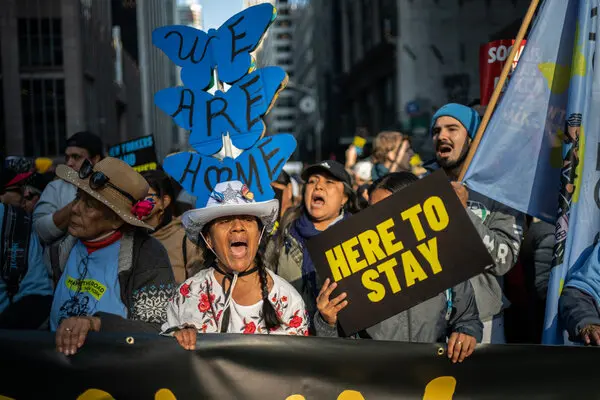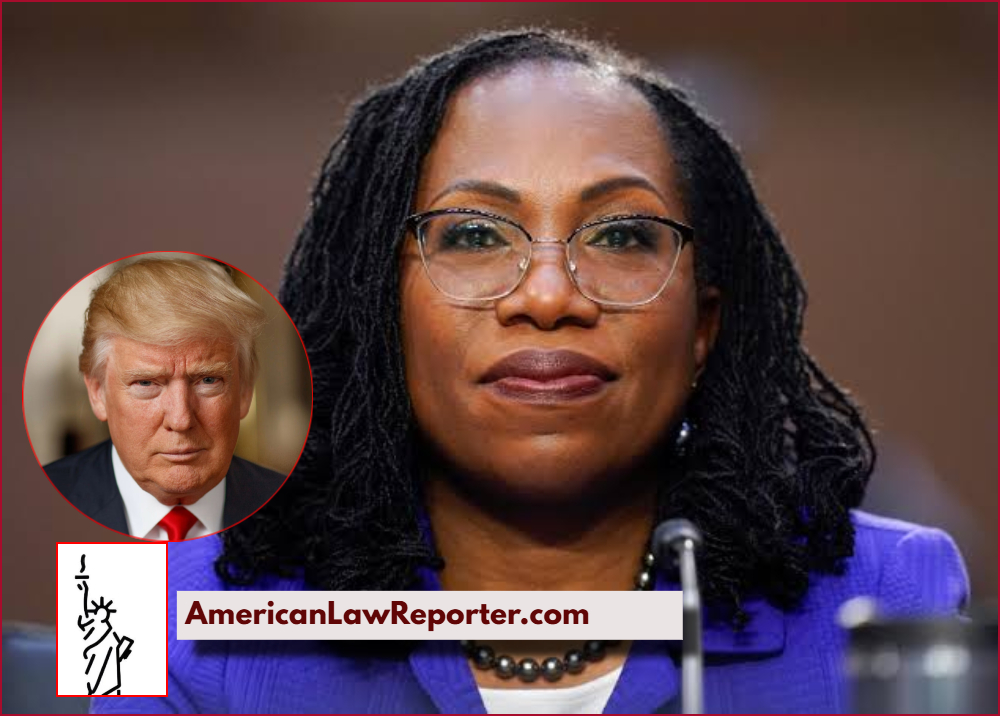In a sharply worded dissent, U.S. Supreme Court Justice Ketanji Brown Jackson condemned her colleagues for allowing the Trump administration to revoke humanitarian parole status for over 500,000 immigrants from Cuba, Haiti, Nicaragua, and Venezuela—sparking what she warned will be “needless human suffering.”
The majority decision came Friday, May 29, when the high court granted an emergency application to stay a lower court injunction blocking the termination of Biden-era CHNV (Cuba, Haiti, Nicaragua, Venezuela) parole protections. The case, Noem v. Doe, arose after U.S. District Judge Indira Talwani halted the revocation effort in April, prompting an unsuccessful appeal to the First Circuit before reaching the nation’s highest court.
The court’s decision effectively clears the path for mass deportations, stripping thousands of migrants of their temporary work authorizations and protections from detention or removal while litigation is still pending.
“The Court has plainly botched this assessment today,” Jackson wrote in dissent, joined by Justice Sonia Sotomayor. “It requires next to nothing from the Government with respect to irreparable harm. And it undervalues the devastating consequences of allowing the Government to precipitously upend the lives and livelihoods of nearly half a million noncitizens while their legal claims are pending.”

A Question of Harm and Equity
At the heart of Jackson’s dissent is the legal standard governing emergency stays: courts must consider whether the party seeking relief would suffer irreparable harm, whether the balance of equities favors the stay, and whether it serves the public interest.
According to Jackson, the government’s argument—that the inability to enforce immigration policy constitutes irreparable harm—fell woefully short.
“The balance of the equities also weighs heavily in respondents’ favor,” Jackson asserted. “While it is apparent that the Government seeks a stay to enable it to inflict maximum predecision damage, court-ordered stays exist to minimize—not maximize—harm to litigating parties.”
She emphasized that parolees came to the U.S. with the government’s invitation and, in many cases, have since integrated into communities, established homes, and pursued legal status.
“Social and economic chaos will ensue,” she warned, “if that many noncitizen parolees are suddenly and summarily remanded.”

Government Defends Revocation as National Interest
In its emergency application, the Trump administration characterized the injunction as a “de facto permanent” restraint on immigration policy and claimed that halting parole revocations undermines foreign policy and executive authority.
The administration also argued that public interest and governmental harm were effectively merged in this context.
“The irreparable harm here is acute,” the government wrote. “The President is a representative of the people… Courts irreparably injure our democratic system when they forbid the government from effectuating those policies against anyone anywhere in the Nation.”
The administration further insisted it retained discretion to re-parole individuals on a case-by-case basis, but Jackson dismissed this as a weak safeguard against harm.
Jackson: Legal Process Should Come Before Deportations
In one of the most blistering passages of her dissent, Jackson rebuked the Court’s apparent rush to allow deportations without waiting for a final ruling on the legality of the CHNV terminations.
“At a minimum, granting the stay would facilitate needless human suffering before the courts have reached a final judgment,” she wrote. “While denying the Government’s application would not have anything close to that kind of practical impact.”
She concluded by condemning the Court’s failure to act as a meaningful check on executive power:
“Instead, the Court allows the Government to do what it wants to do regardless, rendering constraints of law irrelevant and unleashing devastation in the process.”
Legal and Humanitarian Implications
Legal experts say the decision may signal a growing deference by the conservative-leaning Supreme Court to executive power in immigration cases, especially on emergency dockets. Meanwhile, immigration advocates and civil rights groups warn that tens of thousands of families now face separation, detention, or return to unsafe conditions.
The CHNV parole program was introduced by the Biden administration in 2022 and 2023 to allow migrants fleeing instability to remain temporarily in the U.S. under financial sponsorship. The Trump administration’s Department of Homeland Security moved earlier this year to revoke those grants en masse.
With Friday’s order, those revocations can now proceed—raising urgent questions about due process, executive overreach, and the humanitarian cost of rapid deportation policies.

